
The day after moving in, he heard that his friend Robert Capa had been killed by a landmine while photographing the advance of a French regiment in Vietnam. Sweet Thursday—the sequel to Steinbeck’s 1945 instant classic Cannery Row—would publish the following month. And Warner Bros. had just wrapped up production of the screen adaptation of East of Eden, the novel Steinbeck considered to be his greatest work . It was around this time that Steinbeck began to seriously consider writing for a French newspaper. He sketched out the idea that May in his letter to friend and agent Elizabeth Otis:
You know I have had an idea in the back of my mind for a long time. Here in France I get interviewed all the time. I spend hours with journalists helping them to make some kind of a story and then when it comes out it is garbled and slanted and lousy. I wondered why I did not write my own interviews and charge for those hours of time and have it come out my way. In other words, why should I not write 800 words a week for one French paper, simply called something like an American in Paris — observations, essay, questions, but unmistakably American. . . . [1]
A weekly column for the French daily Le Figaro might seem like an odd choice for a world-renowned American novelist who claimed to be “helpless in French.” Yet so it went. The tenth installment of “One American in Paris” was a short story published on July 31, 1954, as “Les Puces sympathiques.” To our knowledge, it has never before received mass distribution in English. We are humbled and honoured to share it here.
Denne historien er fra Issue 58 - June-November-utgaven av The Strand Magazine.
Start din 7-dagers gratis prøveperiode på Magzter GOLD for å få tilgang til tusenvis av utvalgte premiumhistorier og 9000+ magasiner og aviser.
Allerede abonnent ? Logg på
Denne historien er fra Issue 58 - June-November-utgaven av The Strand Magazine.
Start din 7-dagers gratis prøveperiode på Magzter GOLD for å få tilgang til tusenvis av utvalgte premiumhistorier og 9000+ magasiner og aviser.
Allerede abonnent? Logg på
INTERVIEW Laurie R. King
CREATING new works based on an iconic fictional character who’s been around for over a century can be a minefield for an author.
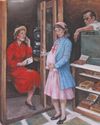
ADVENTURE ON A BAD NIGHT
BEFORE dinner was quite finished Vivien began wanting to get outdoors, into the air she hadn’t seen since afternoon.
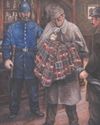
THE EDINBURGH BANKERS
“MR. Holmes, I’m not asking for myself. It’s for the livelihood of the rest of us.”
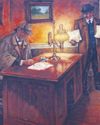
The Adventure of the Home Office Baby
FOLLOWING the occasion of my marriage, and relocation with Mary to our newlywed home in the Paddington district, only a few blocks east of the great station itself, I was able to continue building my new practice while still finding time to assist Sherlock Holmes in a number of investigations.
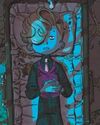
KEVIN OF THE DEAD
PEOPLE often say to me, “Kevin, what’s it like being undead and all that?” And I say, “It’s a job, you know?” You get up at sunset, brush off the dirt and slugs, climb out of the box, and off you go into the night looking for some poor unfortunate to siphon a pint from.
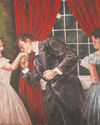
AUNT NELLIE'S DIARY
MANY contemporary readers know Louisa May Alcott only as the author of the classic Little Women, the much-beloved story of the March sisters’ journey from childhood innocence to mature womanhood.

INTERVIEW John Grisham
FOR the last thirty years, the term legal thriller has been synonymous with John Grisham. Credited with single-handedly popularizing the genre, he has inspired scores of other authors and, in the process, has become both a commercial and critical success.
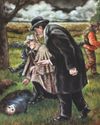
The Dowser's Discovery
“IF you don’t mind, sir,” said old Fiedler as he finished pouring our coffee, “I’d like to go into the village this morning with the others. It’s market day.”

THE AMIABLE FLEAS
IN May 1954, more than fifteen years after writing Of Mice and Men and The Grapes of Wrath, John Steinbeck rented a house for himself and his family a stones-throw from the Champs-Elysées in Paris.

INTERVIEW Don Winslow
EVER since Raymond Chandler and Dashiell Hammett revolutionized the crime novel with hardboiled heroes, gritty settings, and moral complexity, countless authors have tried to carry the torch.